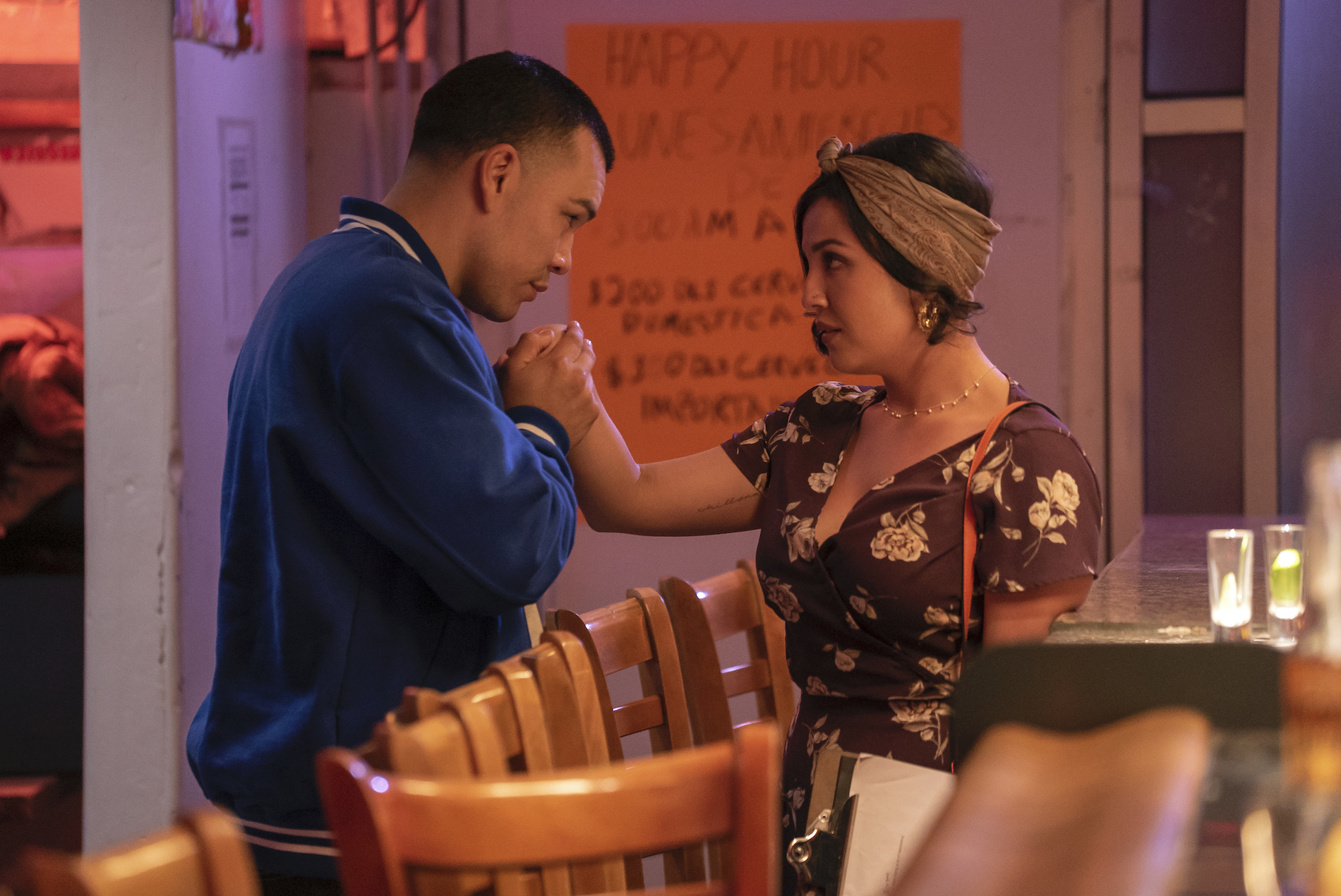The characters in Gentefied switch effortlessly between English and Spanish. They blend slang from both languages seamlessly into their conversations. They joke about using their “white voice” when encountering uppity bank managers. They complain about $5 burritos being too expensive. They work at fancy restaurants and at local taquerias. They use Instagram to crowdfund and call fellow Latino sellouts “coconuts” and “potatoes” (both being brown on the outside but white on the inside). In sum, they offer as wide-ranging a collection of Latinx identities as you’re likely to find on U.S. television. Like Vida and East Los High, Gentefied is a show that proceeds from the premise that you need to tell stories about the Latinx community for the Latinx community.
Created by two Chicano writers, this Boyle Heights-set show first began as a MACRO-produced web series that boasted America Ferrera as an executive producer. Capturing a rapidly changing Los Angeles, the bilingual show is, as its title suggests, interested in what happens when you examine gentrification from within and across a Latinx community where various generations are seeing their neighborhood change right in front of their eyes. For actress Annie González, who plays Lidia Solis, a Stanford graduate who moved back home to make a difference in her community, this was one of the draws of the project. It was a chance to celebrate the very place she grew up in, able to shoot scenes not just at White Memorial and on Cesar Chavez Avenue but at places like Mariachi Plaza, where she’d seen her father, a salsero, perform many times.
Seeing Boyle Heights and its residents, both old and new, be represented on a show like Gentefied makes González giddy with excitement for what it means for newer generations. In between shoots during a set visit, she tells Remezcla, she grew up admiring Barbra Streisand and Bette Midler — even Rita Moreno (“She’s a fucking powerhouse! She’s got an EGOT, like, hell yeah!”) — but she was always famished for more. As she puts it in a mantra she returns to time and time again as she speaks about Gentefied: “You cannot become what you can’t see.”

Like many Latina actresses before her, González has had to contend with an industry that’s all too comfortable boxing her into limited roles — like “the chola” or “the good girl.” Learning to embrace her own culture, she admits, was a struggle, for it required revising not only the way the world saw her but how she saw herself.
“I remember growing up not wanting to be Mexican,” she says. “I wanted to be Puerto Rican. I wanted to be Colombian. Because it was exotic. It felt better than to be Mexican from East L.A.; I remember kids at school would even tell me like, ‘You’re a gardener.’ ‘You clean houses.’ And, let me tell you, like, for a minute I was cleaning some houses, but that’s not all I do, you know?”
It wasn’t until she went to East L.A. College and started taking Chicano Studies classes that she began to get closer to her culture and discovering its beauty. But those experiences could never have prepared her for how wholly radical being on the set of Gentefied would feel. “I mean, the fact that I get to play an adjunct professor from East L.A. college in all my glory, looking like this with a shaved head, speaking and not having to code switch, but knowing when I’m in front of these people that I can code switch … That for me is so powerful.”
To that end, Gentefied is not afraid of delving into the messiness that is the Latinx identity in the United States. Therein lies its beauty and its strength; its characters aren’t a monolith nor do they all adhere to any given stereotype. “Because we are showing so many beautiful colors of the culture and of what we are as Latinx people,” she adds. “I think we’re showing that we are professors, we are artists, we are owners of businesses … you know, we are Afro Latinas. We come in so many different shapes and colors.”
And where many may bristle at her choice of label — nowadays few words inspire as much ire and contention as “Latinx” — González embraces it for its poetic implications: “Latinx, to me, means visibility. It means inclusion. It means … it means home.”
Gentefied drops on Netflix February 21, 2020.
Interview conducted by Catrina Dennis.







